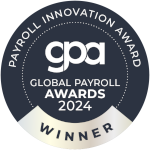
UPDATED JANUARY 2024
It is something that Troncmasters comes across time and again: businesses not knowing the risk when they let staff dip into the till for their tips.
It is a practice that is becoming more prevalent, leaving business owners with the prospect of being charged with tax evasion.
COVID-19 changed many things, and one of those is how often cards are used to pay gratuities, including tips and service charges, rather than cash. Before the virus hit the UK, more than half of payments were already being made by card. By the summer of 2021, that had increased to five out of six transactions.
So, some employers – with the best of intentions – have been letting staff open the till to cash out tips or service charges considered due to them that have been paid by card.
A serious error
Many will appreciate the logic behind this mistake. It can seem like this is the equivalent of letting people take tip money off the tables (where the staff member would still have to declare this to HMRC). However, this is not the case.
One consequence will be that a business’s balance will be wrong when doing the books for HMRC – an EPOS should hold a proper record of all money taken, and so it will pass this irregularity on to the tax department.
Furthermore, this practice of letting people take their gratuities out of the till is a form of tax evasion. Money that flows into a business must be dealt with properly: if the business owner handles and distributes the gratuities, then tax and National Insurance need to be paid; accordingly, all money must be accounted for properly.
Any attempt to artificially alter records is considered evasion, including any software or workaround tricks people use to alter the data it holds.
And this act, originally made by a business out of goodwill, could land its staff in serious trouble: the government has recently put an extra £12 million into preventing error and fraud in tax credits. In May 2022, HMRC also updated their regulations to include handling electronically paid tips and service charges, a sign of how much payments have changed to this method.
What is the solution?
First, you need to make sure this practice is not happening in your establishment. The penalty for tax evasion in the UK is either a fine of up to £20,000, imprisonment for as many as seven years, or it can be both.
Keeping the money was not considered best practice, and from July 2023, the new Allocation of Tips legislation makes it against the law. Politicians agreed that they want hospitality staff to get all the money they are due that is collected as gratuities.
So, you need to think about how best to pay gratuities to your employees. Most businesses want to pass on gratuities to their staff, even before the law makes it compulsory. Some pass on the tips but keep a small admin fee, others increase the payroll. Both will result in more than half the money being taxed in one form or another, such as VAT and National Insurance, which will impact the business.
The best way to distribute gratuities is through a tronc scheme. A tronc scheme is a completely legitimate way of allocation the monies, that means the business takes no financial hit, and the employees take as much of their gratuity payment as is legally possible – usually only 20% will be taken in tax overall.
A tronc scheme will mean a member of staff (not a business owner) or an external organisation will take care of the distribution of all gratuities. They will run a payroll for the tips and make sure that the correct information is sent to HMRC.
It is more than possible to set up a tronc scheme in-house, but that person will have to take on extra responsibility. Even if you appoint a highly competent member of staff, it can be inefficient to run, and money can get missed.
At Troncmasters, we run a flexible alternative: we can do everything from administering the tips to overseeing full payment services – including PAYE and complete payroll. Contact us today to see how you could reduce the risk of non-compliance penalties in your business.
Contact us to find out how we can help with your tronc scheme.
